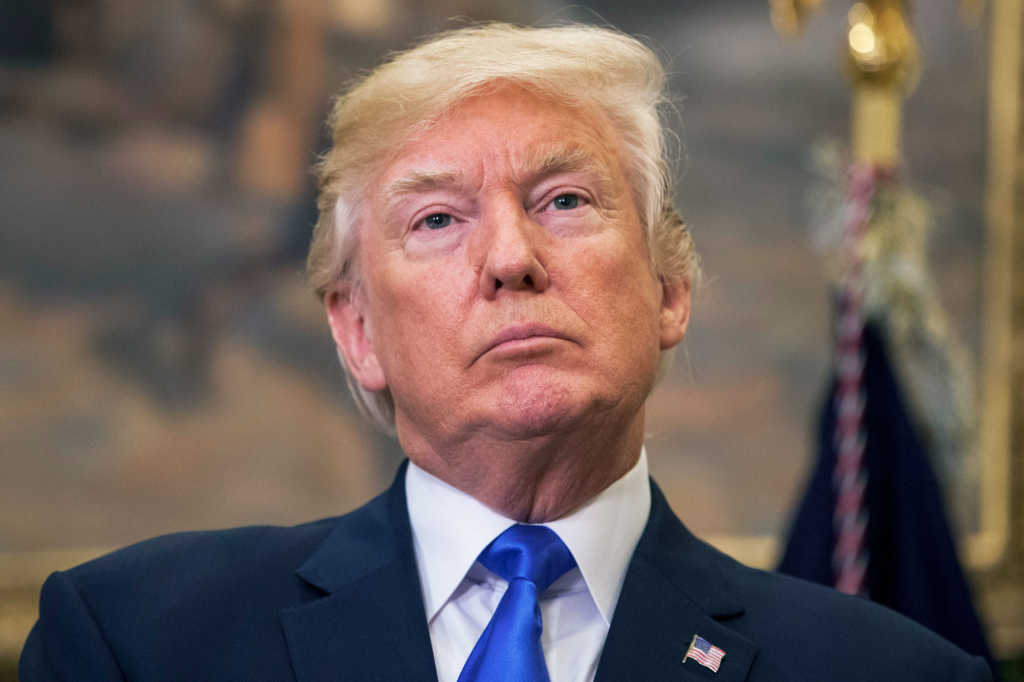US President Donald Trump vowed to teach China a lesson for its shrewd trade and monetary policies while campaigning for 2016 presidential elections and after being elected as president he has done the same. He is known for his anti-free trade, anti-immigration, anti-liberal, and anti-bureaucratic policies. He told the media during the campaign that America is losing to countries like China, Mexico, and Canada due to free trade policies of previous governments and he will bring policies to minimize the trade deficit of the country. Trump is a firm believer that US industries are losing out due to imports from countries like China because the cheap price of imported products swells up the local industry.
After president Trump came to power, he imposed heavy tariffs on US imports of steel, aluminum, washing machine, solar panels etc. The US has a trade deficit of almost 700 billion dollars of which China accounts for almost half.
Imposing import tariffs is rebalancing the trade relations of US with countries like China, Japan, Germany, Mexico etc. In the month of April 2018 trade deficit fell 2.1% to USD 46.2 billion after a downward revision for March. The result was better than analysts expected since a consensus forecast called for a 3.4% increase. The deficit with China in goods only, the principal driver of the overall US trade gap, fell 9.8% for the month as US imports from the industrial giant fell USD 4.7 billion to USD 41.9 billion. Americans imported fewer mobile phones and consumer goods as well as passenger cars. Trump’s multi-front trade confrontation was due to spill over into this week’s Group of Seven summit in Quebec, Canada.
There was a unanimous consensus among the policymakers and leaders that free trade benefits people as well as the business. The free trade era started with the election of Ronald Regan and Margaret Thatcher in early 1980s in America and Britain respectively. Both of them were staunch supporters of free trade and this era has gone unopposed till late 2000s, the age of unquestioned deregulation, liberalization, privatization, globalization came to a halt in post Great Recession (2007-08) period. The era of globalization has been able to push the economic growth to level never before in human history but it also created huge intrastate disparity. The benefits of globalization while enjoyed by the masses in developing countries like China, India, South Korea, and Philippines to a great extent it ended up harming majority of people in developed countries like America and Britain. The global inequality came to a new low because industrial base expanded exponentially in developing countries due outsourcing from developed countries. At the same time in developed countries like America which started outsourcing semi-skilled labor operations to developing countries like China and India, the intra-state economic inequality reached to a new high. The companies in developed countries outsourced their low skilled operations to developing countries because it saved a lot of money for them as labor is many times cheaper in countries like China and India, which resulted in huge profits for them but this outsourcing left minimal jobs for semi-skilled labor in their own countries.
Today, the top 1 percent controls more than half of American wealth due to consequences of free trade and globalization. The outsourcing created a large-scale employment in the developed world with unemployment rates crossing 20 percent in countries like France and Japan. The free trade which was expected to benefit the people ultimately wiped out many industries like manufacturing of electronic parts, clothes out of those countries and workers in these industries ended up being unemployed. Now, these guys having no jobs have to depend on state welfare schemes to carry out daily life activities and this was the reason they supported protectionist leaders in America and much of Europe. The protectionist approach by leaders like Donald Trump is expected to bring semi-skilled jobs back to the country and therefore revive the industries related to manufacturing and assembling. The results of his policies have already resulted in many major US companies bringing jobs back to the US. Amazon, Apple and Ford are some of the big names which have decided to bring the manufacturing jobs back to America. Ford’s decision to cancel its proposed manufacturing plant in Mexico and to build it in US is testament to Trump’s policies working on the ground. Although, results are showing up it will be interesting to see to what extent these leaders succeed in reviving industries in their country.
